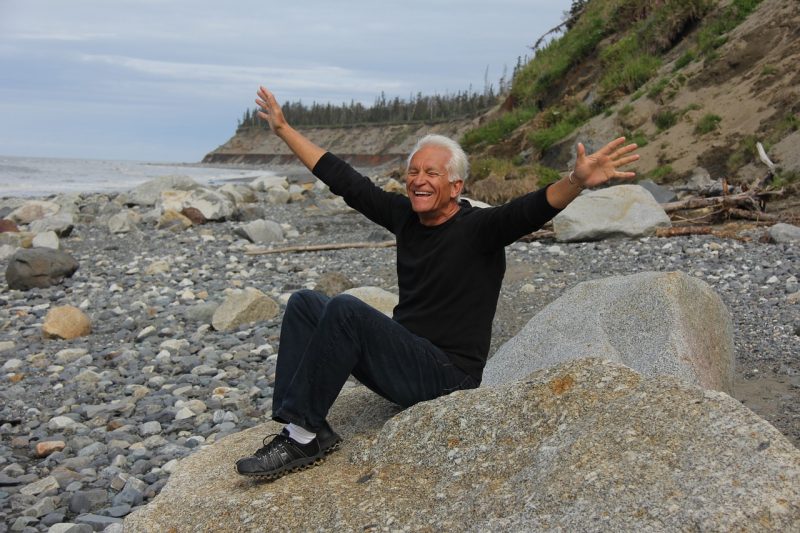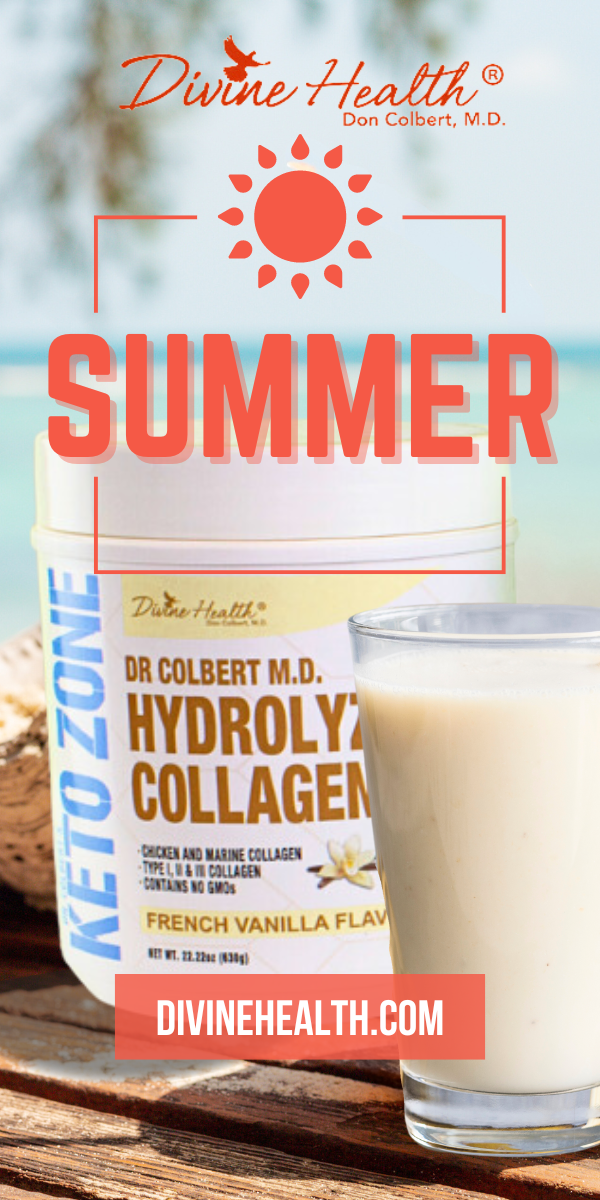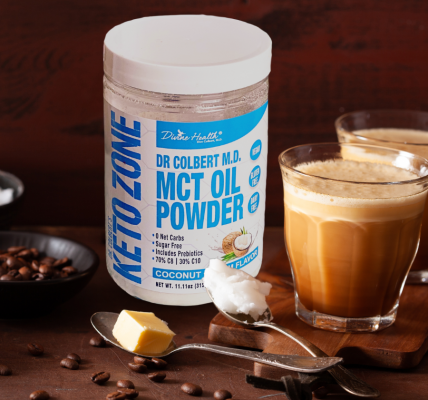Do you feel like you’re getting healthier year after year? Or declining?
While it’s natural for our cells, tissues, and body to age, there are steps you can take to keep them all as healthy as possible.
And thrive.
Healthy aging means avoiding cognitive decline, keeping your heart and arteries healthy, reducing inflammation and oxidative stress, and supporting your body’s natural vitality.
You can do it. Here are our 7 Steps to Healthy Aging no matter what your current age.
7 Steps to Healthy Aging
1.Hydrate
If you want your skin to look youthful and bright, a sparkling smile, healthy digestion, and cushioned joints, it all starts with hydration.
While much has been said about the minimum of fluid a body needs per day, hydration is often overlooked for what it can do for you beyond the minimum.
When you drink adequately, you give your body the component that makes up a huge percentage of its cells, tissues, and systems.
In fact, everybody system needs adequate hydration to thrive.
What’s more, fluid can help with satiety (feeling full) and weight loss. Here are a few drinks from which to choose:
- Water: Purified water is your best choice for hydration. It offers all the benefits without any extra ingredients to bog the body down.
- Green and Black Tea: Green and black tea are youthful drinks! They can reduce age-expediting stress and cortisol, have antibacterial properties for oral health, support eye health contain brain-boosting compounds, and can even promote weight loss (1).
- What about coffee? Coffee is a healthful drink, and a great way to start the day. But its high caffeine level can act as a gentle diuretic, so don’t count it towards your hydration totals.
How Much? I recommend a minimum of 48-64 oz. fluid per day for most women, and 64-80 oz. per day for most men. But, many people feel great on more. Also, add more hydration if you workout. Try to get in all fluids before 7 pm or so, so that it doesn’t disrupt your sleep.
Lastly, make sure to brush your teeth after drinking coffee and tea to avoid staining.
2. Incorporate Foods that Slow Aging
Believe it or not, some foods slow the aging process in your cells and tissues! In fact, foods and nutrients that promote cell detoxification, reduced inflammation, and connective-tissue health are potent anti-agers.
Some of the best Anti-Aging foods include:
- Hydrolyzed Collagen: Hydrolyzed collagen powder is a protein made from the bones, tissues, and hooves of animals. Although this does not sound very particularly beautiful, the amino acids it contains can improve the health of our own tissues and skin. In fact, it can do wonders for dry, winter skin.
- Omega-3 Fats: Omega-3s fats are strong dietary anti-inflammatories. When consumed, especially in amounts that improve their ratio to omega-6s, they cause our bodies to produce less harmful inflammatory hormones and more healthful anti-inflammatory hormones.
- Spices like Ginger, Turmeric, Raw Cacao, Black Pepper, and Cinnamon. Spices are anti-aging foods that work at the cellular level. They are extremely high in antioxidants. Their antioxidants are so potent at the cellular level they go beyond the normal reduction in oxidative stress to promote longevity and health in the body. What’s more, ginger and turmeric are also strong anti-inflammatory foods that reduce joint and muscle pain.
And there’s more! Some foods reduce fluid retention, while others specifically promote youthful eyes, brains, and hearts.
Check out the full list and all the details here.
3. Avoid foods that promote aging
While some foods slow again, others expedite it.
These foods increase inflammation, oxidative stress, skin issues, and more. Some of the top offenders include:
- Commercial Dressings and Condiments with Soybean Oil
- Margarine
- TV Dinners with unhealthy fats
- Sugary Energy Drinks
- Fast-Food Deep-Fried Options
Don’t stop there. Learn which foods are the worst for aging and how to avoid them here.
4. Add Fasting to Your Routine
Many people fast for spiritual reasons, and this is great. But fasting also has benefits that manifest physically.
In fact, there are numerous scientific studies that show its anti-aging benefits.
Fasting can increase insulin sensitivity, promote weight loss, decrease inflammation, increase mental clarity, normalize levels of the “hunger hormone” ghrelin, and even regenerate the immune system.
In fact, many of its benefits are due to its digestive “rest.” Your digestive tract works very hard for your body. And, much of the work is high-energy.
When you give it a break, your whole body benefits. This is also why eating 24-hours per day or at times when your body wants to rest, is detrimental to hormones and health. We see this is studies involving shift workers and those who work through the night.
How can you incorporate fasting?
You can use full-day fasting once a week or once a month if you’d like.
Or, on a daily basis, try intermittent fasting. This can be as simple as giving your body an extended non-eating time.
Aim to stop eating for the day by 6 or 7 pm. Then, delay solids until 10 am the next day. It’s okay to have non-carbohydrate liquids like Keto Zone Coffee before 10 am.
A schedule like this allows for 15-16 hours of intermittent fasting per 24 hours.
5. Sleep
Consistently get at least 7-8 hours of good sleep per night. I know, easier said than done.
However, great brain health is one of the key pieces to healthy aging.
And, guess what’s one of the best things you can do for your brain?
Sleep.
In fact, lack of sleep is associated with increased anxiety, slow brain performance, increased blood sugars, hormone disturbances, and more. These all lead to expedited and unhealthy aging.
To age well, you don’t need just any sleep…you need good sleep.
So, if you suffer from snoring, sleep apnea, or anything else that disturbs sleep, it’s worthwhile to speak with your doctor and explore treatments.
6. Vitamins, Minerals, and Nutrients That Support Health Aging
As we age, our bodies experience reductions in many youthful hormones and nutrients like estrogens, testosterone, and human growth hormone. Some of these are the result of natural aging, and some are the result of modern stressful schedules and lifestyles, poor dietary habits, sedentary work, and more.
There is something you can do!
You can replenish your stores with high-quality, anti-aging supplements and nutrients. You can also use foods that support vitality. Some good ones to add are:
- Vitamin D: Vitamin D specifically can help keep our hormones balanced as we age. It helps regulate other hormones, including adrenaline, noradrenaline, dopamine production in the brain, and serotonin. These hormones contribute to our emotional responses (2), metabolism, weight, and energy levels.
- Vitamin K2: Vitamin K2 is often deficient in adults. It improves bone health specifically in post-menopausal women. Bone health is important for a youthful body, as failing bones and joints can keep us from doing the youthful activities we want (3).
- Diindolylmethane (DIM): DIM is a compound produced by our bodies when we eat green vegetables, is important for balanced hormones because it alters the metabolism of estrogen. DIM blocks an enzyme that converts testosterone to estrogen and converts “bad estrogens,” into good estrogen metabolites (bad estrogens cause most pre-menstrual and menopause symptoms).
- Ashwagandha: This herb has been used in Ayurvedic medicine for thousands of years. It supports balanced hormones, vitality, energy, mental health and more.
For the best-quality supplements that include these nutrients, check out Thyroid Zone and Hormone Zone.
7. Stay Active and Flexible
You don’t have to run marathons or be a powerlifter. But, your arteries and heart will benefit when you get your heart pumping!
Going for a brisk walk, engaging in fun sports, and being outside is great for your mental health, muscles, and arteries. They can keep you feeling young and improve mood, too.
What’s more, did you know that your trunk flexibility directly represents the flexibility of your arteries? As crazy as it sounds, keeping your body flexible enough to touch your toes means better artery and blood pressure.
Stretch, stay flexible, and stay active.
Bottom Line
We all age. But, this does NOT mean that our health has to decline. Instead, use these 7 Steps to Healthy Aging to age well, keep your whole-body healthy, and feel great year after year!











